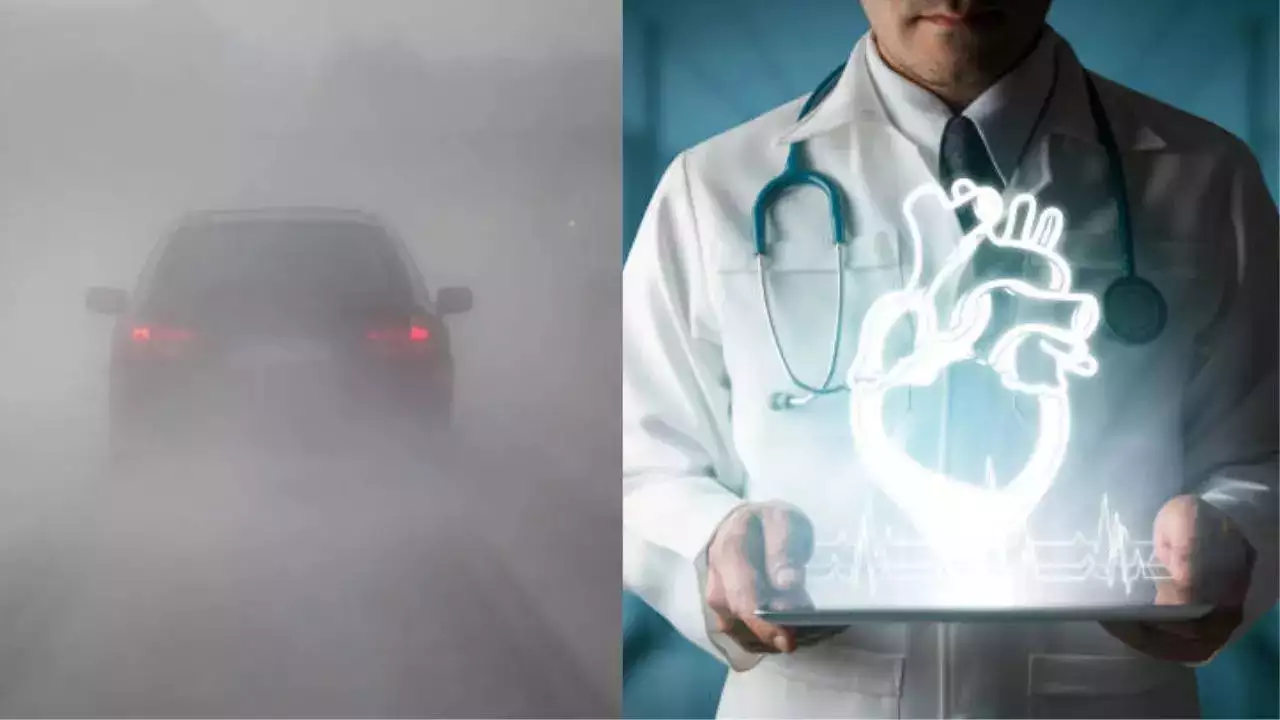
For those with coronary artery disease, cold weather can trigger angina
Even as fog and extreme cold wave conditions have persisted in north India, doctors have warned special and extra precautions for those with existing heart issues. According to experts, if you have any kind of heart disease, it is best to stay healthy during cold weather as it can present more challenges for your health.
For those with coronary artery disease or CAD, cold weather can trigger episodes of cardiac ischemia which causes angina—when your heart does not receive enough blood flow—or even cause heart attacks. Similarly, a rapid drop in temperature can lead to sudden worsening of symptoms, increase the risk of hospitalisation, and even an increased risk of death.
And so, if you have a heart disease, the onset of cold temperatures would require special precautions.
How does a cold wave affect your heart?
When the temperatures are low, a cold environment presents different challenges if you have a heart disease. According to doctors, cold temperatures lead to blood vessels constricting or getting narrower. This helps minimise heat loss from your blood to regulate your body's normal internal temperature.
And so, when the blood vessels begin to constrict, your blood pressure increases, making your heart pump blood harder through the constricted blood vessels in the body. If you have a healthy cardiovascular system, this blood vessel constriction should not cause any problems. However, if you have plaque in your arteries, it leads to a blockage in the artery, which could cause a heart attack.
What are the precautions for heart disease in cold weather?
While everyone needs to take precautions when they are in a cold environment, those who have heart problems should take extra care.
Limit your cold exposure
Limit the time you spend outside when it is cold. If you go out, make sure to be dressed appropriately in several layers. Cover your head and hands and wear warm socks and shoes.
Do not exert yourself too much
Any kind of physical activity can trigger a cardiac emergency if you have heart disease. It causes angina, heart attacks, heart failure, and sudden death. Doctors say even walking more rapidly than usual is common when the wind is blowing in your face.
Do not overheat yourself
Dressing warmly and then engaging in physical activity causes overheating, which leads to blood vessels dilating or widening that cause hypotension or low blood pressure. If you are out in the cold and you find yourself sweating, you are overheated. If you have heart disease, consider this sweating to be a danger sign.
Get a flu shot
Winter also raises your chances of getting the flu due to the low humidity brought on by cold weather and indoor heating.
Do not drink alcohol
Avoid drinking alcohol before going outdoors, as it can expand blood vessels in the skin, making you feel warmer while actually drawing heat away from your vital organs.
Get Latest News Live on Times Now along with Breaking News and Top Headlines from Health and around the world.
